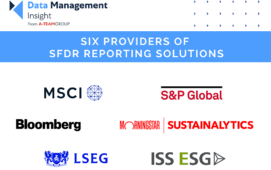
Uncertainty over how ESG data should be used and reported is placing a strain on private equity investment, one of the fastest growing pools of capital going into sustainable markets.
A survey by software-as-a-service data management firm Key ESG found that nine in 10 of the portfolio companies that private funds trust to manage their investments are unsure how they should report on ESG.
Portfolio companies are key collectors of the data on which private equity firms make their investment decisions and comply with disclosure regulations. Without portfolio companies’ full engagement in the data process, private equity firms will have to build out their own data teams and systems, the report stated.
“Private equity’s active engagement with its portfolio companies makes it uniquely placed to drive sustainability,” the report summarised. “But to do so effectively, private equity firms must have the right data on which to base crucial ESG decision-making. This means, not simply relying on industry averages to fill gaps in an ESG report – but actually, working with the portfolio companies to get the granularity of data and insight.
“Often, this data is not readily available and private equity firms will have to build the data collection, reporting and disclosure processes across their portfolio to be able to deliver on their ESG promise.”
While the data challenge is greatest among smaller firms, the issue has potential ramifications for financial institutions, who are estimated to have committed about a quarter of their capital into such funds. In Europe alone, the private equity ESG sector is expected to rocket to €1.2 trillion by 2025, of 42 percent of total private market assets, according to PwC.
The Key ESG survey of 100 market participants found that the most common hurdles were not knowing which data should be collected and analysed, and lacking the technology to track data.
With the first regulatory deadline looming in June, the report also found that some firms are taking up to 12 weeks to collect the necessary compliance data, putting them at risk of meeting deadlines.
Subscribe to our newsletter




